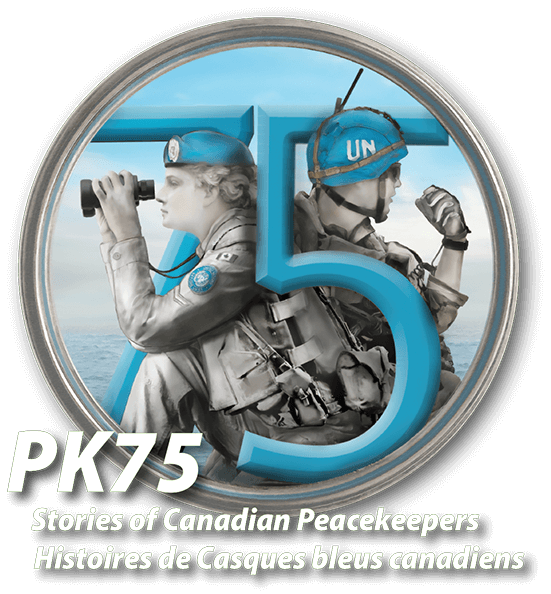Despatches from Sudan
Sudan Despatches: 14 April 2005
Sudan Despatches: 22 April 2005
Sudan Despatches: 31 July 2005
Background
My name is Bob Chaloux and I served for 35 years as an Army Logistics Officer in Canada and abroad. This included three UN and one NATO tour. On my NATO tour to Bosnia in 2000, I began a tradition of emailing home a periodic summary of my experiences to my friends and family to keep them up to date on my experiences. This would cover a mixture of the work and social aspects, with accompanying photographs to provide visuals. I continued this tradition in 2005 during my UN Mission to Sudan (UNMIS) and I titled the letters the “Sudan Despatches” with the date of their issue. When asked to participate in the PK75 Anthology, I pulled up those emails to remind me of the tour and was awestruck by all the activities and experiences I lived through as a UN Peacekeeper in Africa. Too often, when reading about a mission, we only see the work-related portions explained, totally omitting the social aspect of the experience. Military life is a combination of work and social, which is what makes it a remarkable profession. This section of the anthology is a reproduction of my letters home during my Sudan tour, and it will provide a good overview of what we experienced on an operation.
Sudan Despatches: 14 April 2005
Well, you can say I joined the Army for travel and adventure…. I am sure getting lots of that right now! When I was in Bosnia, I started e-mailing family and friends with updates on my tour, I will do this again as it is a good way to pass information and keep in touch.
I flew out of Copenhagen on Sunday 10 April for a six-month tour with the United Nations Mission in Sudan (UNMIS) as the Senior Staff Officer for the Joint Logistics Operations Centre. Basically, I will be working as part of the team that will control and coordinate the logistics for the mission, both military and civilian.
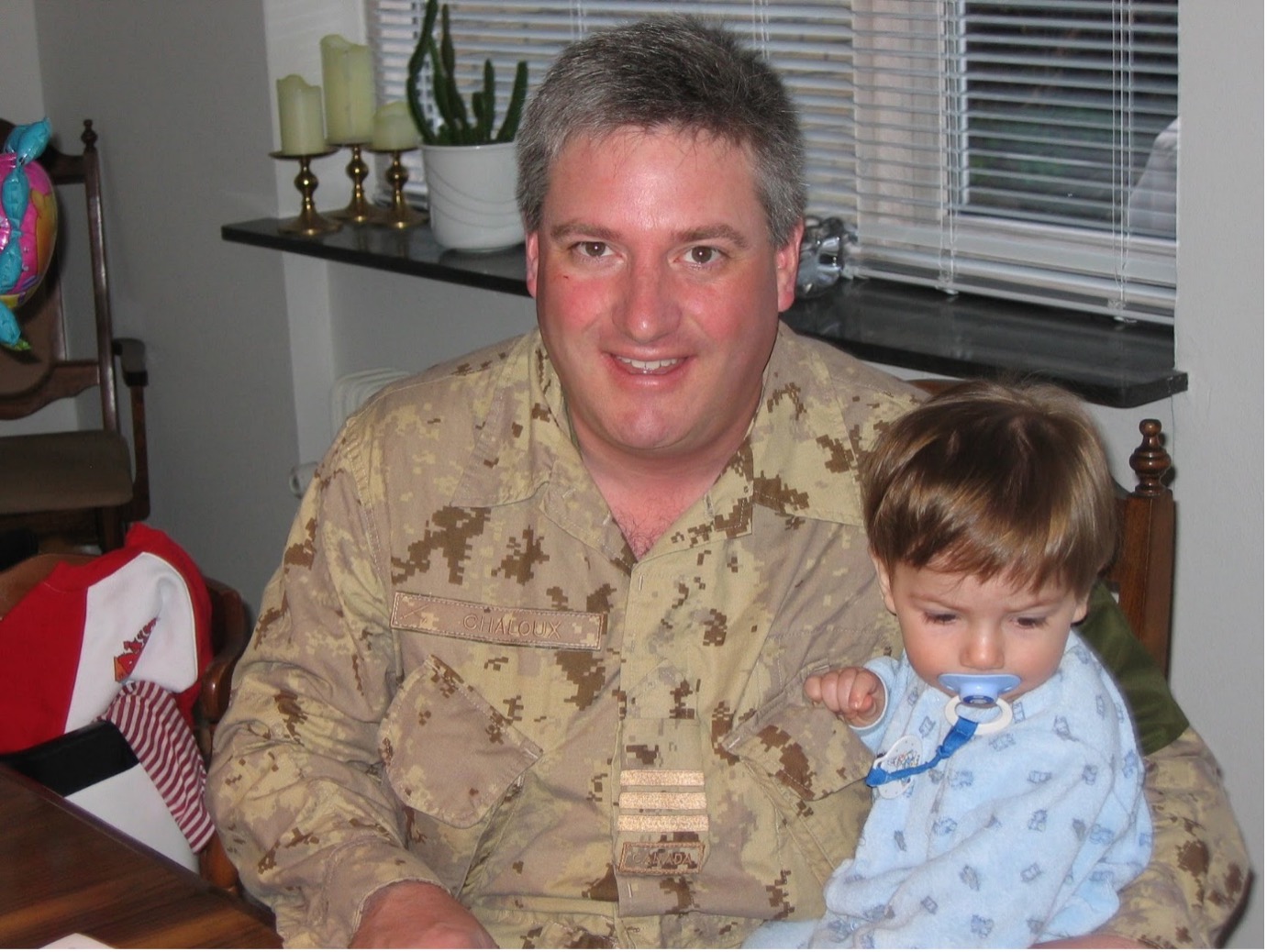 It was extremely difficult leaving Susan and Zachary. Things are completely different when you have a little one at home, I just dread missing out on such things as the first steps, first words…. It will be hard for Susan as she will be a single parent for the next half year. I think I will have a much easier time than she will. We are planning two leave periods (June and August) to try to ease the pain of separation.
It was extremely difficult leaving Susan and Zachary. Things are completely different when you have a little one at home, I just dread missing out on such things as the first steps, first words…. It will be hard for Susan as she will be a single parent for the next half year. I think I will have a much easier time than she will. We are planning two leave periods (June and August) to try to ease the pain of separation.
We flew in at about 2230 local time and the temperature was in the 30’s °C. During the day it goes up to 45°C. The smell was also something. It brought back strong memories of other Arab cities such as Damascus and Cairo. The country is extremely poor and underdeveloped. Chaos reigns everywhere. Everything is beat up and neglected and there is trash EVERYWHERE.
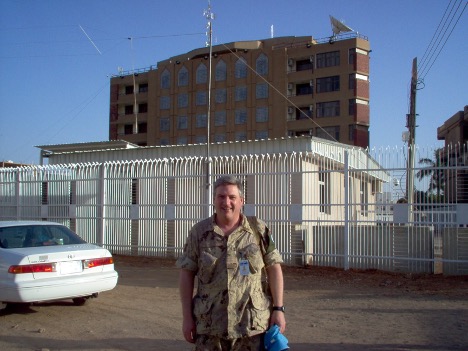 People literally sleep on the streets between traffic (which is something to behold, Montréal is not too bad!). There are over 2 million refugees from the south living throughout the city in appalling conditions. Women with starving babies are seen begging throughout the city. I saw one with two kids, one who was Zach’s age, who was malnourished and had flies all over the eyes and mouth. The poor kid did not have the energy to shoo them away, just heartbreaking. Sudan ranks almost last on the UN Human Development Index, and it is not a stretch to see why. Maybe if the government was more interested in looking after its own people instead of waging war with itself (over 2 million killed in the fighting) it would be in a better state. Yesterday there was an anti-U.S.A. demonstration downtown near our hotel. I saw people running from everywhere going to the same direction, all at once. It was orchestrated by the government through alarms and SMS messages. Luckily it was not violent, and things went back to normal after a couple of hours. The people are happy to have the UN here as they see that as a step in the right direction to an improved quality of life. It is a small consolation to know that we will be making a difference in their lives.
People literally sleep on the streets between traffic (which is something to behold, Montréal is not too bad!). There are over 2 million refugees from the south living throughout the city in appalling conditions. Women with starving babies are seen begging throughout the city. I saw one with two kids, one who was Zach’s age, who was malnourished and had flies all over the eyes and mouth. The poor kid did not have the energy to shoo them away, just heartbreaking. Sudan ranks almost last on the UN Human Development Index, and it is not a stretch to see why. Maybe if the government was more interested in looking after its own people instead of waging war with itself (over 2 million killed in the fighting) it would be in a better state. Yesterday there was an anti-U.S.A. demonstration downtown near our hotel. I saw people running from everywhere going to the same direction, all at once. It was orchestrated by the government through alarms and SMS messages. Luckily it was not violent, and things went back to normal after a couple of hours. The people are happy to have the UN here as they see that as a step in the right direction to an improved quality of life. It is a small consolation to know that we will be making a difference in their lives.
The working conditions are good as the UN has set up the headquarters earlier. The hotel we are staying at for the time being is ratty but acceptable. Things are generally unclean and let go. The food is safe and relatively good, we can’t complain about the living and working conditions. Well, that’s it for now. Hope you are all well. A la prochaine!
Sudan Despatches: 22 April 2005
Greetings to all family and friends! Hope you are all well and enjoying the beginning of spring. Here it is the SUMMER, and the temperature is always in the mid-40’s °C in the day and mid-30’s °C at night. It’s a good thing I don’t have to wear my flack jacket and helmet for work!
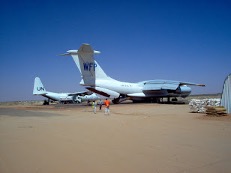 We are very busy, and time is flying. We are getting ready to receive contingents from around the world into places which have absolutely no infrastructure. It will also be the start of the rainy season in a few weeks and the roads will be impassable. Most equipment, people and supplies will have to be brought in by air. The UN has a few planes but making this work will be very complicated. The actual job is very exciting and challenging. We are conducting real life logistics to accomplish an extremely complex operation. It is rare to get such an opportunity and I will make the best of it.
We are very busy, and time is flying. We are getting ready to receive contingents from around the world into places which have absolutely no infrastructure. It will also be the start of the rainy season in a few weeks and the roads will be impassable. Most equipment, people and supplies will have to be brought in by air. The UN has a few planes but making this work will be very complicated. The actual job is very exciting and challenging. We are conducting real life logistics to accomplish an extremely complex operation. It is rare to get such an opportunity and I will make the best of it.
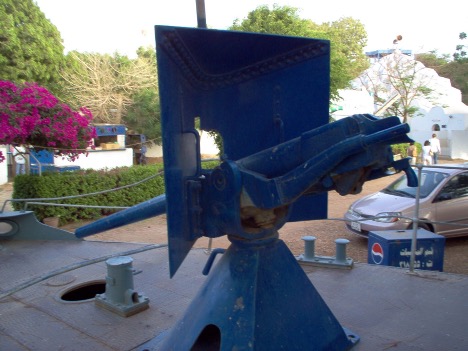 Last Saturday we had a Sudan cultural tour where we went to visit the Sudan National Museum and finished it with a BBQ at the Blue Nile Sailing Club. The museum was quite fascinating with displays and items dating back to the beginning of time. Many artifacts were found while they were digging the Aswan Dam and they are prominently displayed. The BNSC was really fun with good food and people singing along on a guitar. It is right on the Blue Nile and holds one of Lord Kitchener’s gunboats, the Melik, which were used in the British punitive expedition against Sudan in the late 1800’s. (For more on the Melik: www.melik.org.uk/discover/nile-gunboats.) Unfortunately, it is let go and falling apart, like everything else in this country. There is a bar at the Joint Military Commission building in Khartoum and all the UN western people gather there on Saturday nights. A lot of fun with such a mix of people, from soldiers to diplomats to aid workers.
Last Saturday we had a Sudan cultural tour where we went to visit the Sudan National Museum and finished it with a BBQ at the Blue Nile Sailing Club. The museum was quite fascinating with displays and items dating back to the beginning of time. Many artifacts were found while they were digging the Aswan Dam and they are prominently displayed. The BNSC was really fun with good food and people singing along on a guitar. It is right on the Blue Nile and holds one of Lord Kitchener’s gunboats, the Melik, which were used in the British punitive expedition against Sudan in the late 1800’s. (For more on the Melik: www.melik.org.uk/discover/nile-gunboats.) Unfortunately, it is let go and falling apart, like everything else in this country. There is a bar at the Joint Military Commission building in Khartoum and all the UN western people gather there on Saturday nights. A lot of fun with such a mix of people, from soldiers to diplomats to aid workers.
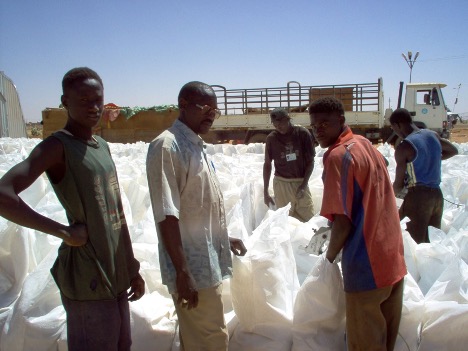 I went for a trip to the south to view the UN Logistics Base in El Obeid and the Kenyan team site in Rumbek (ex-rebel held area and provisional capital of the South). El Obeid was fascinating as it is the hub for the World Food Program’s effort to feed the Sudanese. Food arrives from Port Sudan by road (tractor trailers) where it is stored into big warehouses. From there the food is bagged 5 times by locals and put onto air droppable pallets. It is then loaded onto big Russian planes (flown by Bulgarians) and dropped to the people who need the food (no parachutes). It is estimated that over 1 million would die if this effort were to cease. The food is almost all from the USA, which is interesting when you see all the “Down with America” signs and banners in Khartoum. Makes me think about the expression: “Don’t bite the hand that feeds you”! This effort is truly the UN at its best.
I went for a trip to the south to view the UN Logistics Base in El Obeid and the Kenyan team site in Rumbek (ex-rebel held area and provisional capital of the South). El Obeid was fascinating as it is the hub for the World Food Program’s effort to feed the Sudanese. Food arrives from Port Sudan by road (tractor trailers) where it is stored into big warehouses. From there the food is bagged 5 times by locals and put onto air droppable pallets. It is then loaded onto big Russian planes (flown by Bulgarians) and dropped to the people who need the food (no parachutes). It is estimated that over 1 million would die if this effort were to cease. The food is almost all from the USA, which is interesting when you see all the “Down with America” signs and banners in Khartoum. Makes me think about the expression: “Don’t bite the hand that feeds you”! This effort is truly the UN at its best.
Rumbek is a town that was devastated in the war. All the buildings are blown up and burned down, leaving people to live in straw huts. There is no work there and people are very thin and unhealthy. The education system broke down and now, 98% of females have had no schooling and are illiterate. The figure is similar for the males but not as bad. UNICEF is working hard to try to establish schools with teachers to try to begin remedying this catastrophe. Everyone we met was very friendly and very happy to see the UN in there. People who think the UN is useless should visit these places to see the positive impact the agency is having. The UN is doing everything from establishing the schools, re-building houses, feeding, providing medical care and keeping the peace. I can say without a doubt that this is a good mission and will make a significant impact on the lives of millions. Makes you proud to wear the blue beret.
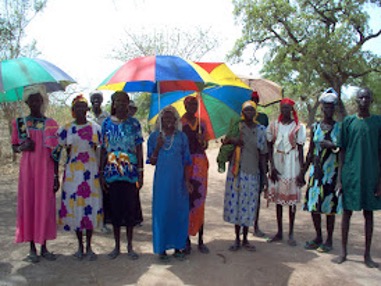 We had a meeting with the Sudan People’s Liberation Army (SPLA) leadership (ex-rebels) about the upcoming deployment and what they could expect from us. These people have been fighting for 21 years straight and have lost most of their families (over 2 million dead and many more millions wounded). Was interesting talking to them about the war and the guerilla campaign they waged. I asked the Brigade Commander what they did when they had casualties, he responded by saying if they couldn’t be cured with herbs they would die. They also explained their culture and beliefs. Women are property and considered as part of the family’s wealth.
We had a meeting with the Sudan People’s Liberation Army (SPLA) leadership (ex-rebels) about the upcoming deployment and what they could expect from us. These people have been fighting for 21 years straight and have lost most of their families (over 2 million dead and many more millions wounded). Was interesting talking to them about the war and the guerilla campaign they waged. I asked the Brigade Commander what they did when they had casualties, he responded by saying if they couldn’t be cured with herbs they would die. They also explained their culture and beliefs. Women are property and considered as part of the family’s wealth.
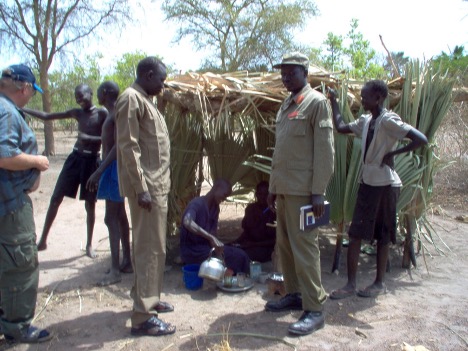 I attended a reception at the Canadian Charge D’Affaires home last night, in the honour of Robert Fowler (remember “Teflon Bob” from the Somalia days) who is one of our senior diplomats at the UN. Was a lot of fun with great food and interesting people. So far, this tour has definitely not been boring!
I attended a reception at the Canadian Charge D’Affaires home last night, in the honour of Robert Fowler (remember “Teflon Bob” from the Somalia days) who is one of our senior diplomats at the UN. Was a lot of fun with great food and interesting people. So far, this tour has definitely not been boring!
Sudan Despatches: 8 May 2005
A great deal has happened since my last Despatches. We had a visit from the Canadian Chief of Defence Staff, General Rick Hillier at the end of April. I was the Senior Cdn Officer on the ground and had a chance to talk to him. Very intelligent man and an exceptional leader. He had a meeting with the SRSG, Mr. Pronk where he felt out options for Canadian participation in Darfur. I have just seen the results of that on the CBC website where it looks like we will be sending 150 troops to Darfur to help assist the African Union over there.
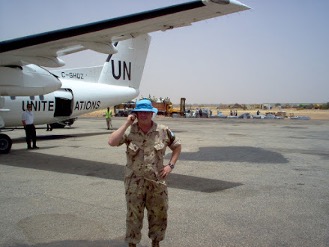 I flew to Darfur on 6 May and visited the UN facilities in El Fashir. Truly horrible place with hundreds of thousands of IDPs (internally displaced persons). The Nyala camp alone is over 200,000 strong. The UN is in there providing the people with basic living standards of food and water. Many villagers have moved into the camps to escape the government attacks and starvation, it will be a challenge to get them back to their original villages. While traveling we stopped for a re-fuelling halt at the hub of El Obeid and were parked next to two Sudanese Air Force attack helicopters. The ground crews were loading them up with rockets and chain-gun ammunition, which is still being used to target the civilians in Darfur. A bit farther down the apron there were transport planes from the World Food Program being loaded with food for the people of Darfur. Was very ironic to see the UN preparing to feed the IDPs and the Govt of Sudan preparing to kill them. Our helicopter pilots routinely see the results of such actions after the fact.
I flew to Darfur on 6 May and visited the UN facilities in El Fashir. Truly horrible place with hundreds of thousands of IDPs (internally displaced persons). The Nyala camp alone is over 200,000 strong. The UN is in there providing the people with basic living standards of food and water. Many villagers have moved into the camps to escape the government attacks and starvation, it will be a challenge to get them back to their original villages. While traveling we stopped for a re-fuelling halt at the hub of El Obeid and were parked next to two Sudanese Air Force attack helicopters. The ground crews were loading them up with rockets and chain-gun ammunition, which is still being used to target the civilians in Darfur. A bit farther down the apron there were transport planes from the World Food Program being loaded with food for the people of Darfur. Was very ironic to see the UN preparing to feed the IDPs and the Govt of Sudan preparing to kill them. Our helicopter pilots routinely see the results of such actions after the fact.
We have changed hotels and are now staying at the Palace Hotel. Much improved over the last place. Rooms are clean and the food is good.
Truly a great work experience, we are making decisions and making things happen. Very different with what I was expecting in a UN setting. Have much more freedom of action than on a Canadian operation.
Sudan Despatches: 28 May 2005
Lots going on in old Sudan now. The rainy season has set in, slowly beginning in the South, and has worked its way up to Khartoum this week. It was quite a sight to see. We have had no clouds or rain since my arrival seven weeks ago and then suddenly this week we started seeing little clouds form. This progressed into bigger clouds and then terrific sandstorms with very high winds. Any temporary dwellings were all destroyed, including the Nepalese Battalion Camp in Kassala, south of Khartoum. Reports back said the boys were just huddling together trying to hold on, in the open with no protection. All their tents and shelters were blown down. This was happening at the same time as meters of rain were falling in 75–100 km winds. This was a very unhappy group of soldiers! The sandstorm also brought a little surprise — a whole hockey-sock of weird germs. Within 24 hrs, 90% of the western soldiers were sick, including yours truly. None of the Africans or Asians were affected, just the Europeans, Australians, and North Americans. About 10 of the guys had to spend days in the hospital getting re-hydrated. For me it was a couple of unpleasant days with stomach cramps and the other usual side effects. Then the rains hit, and I mean cats-and-dogs kind of rain, for hours. The ground does not absorb the water and the sewers are almost non-existent. Deep pools of water are everywhere, and the mud is like gumbo. This water has also brought a Montréal-in-July kind of crushing humidity, and lots of bugs! What a great place to live! This is supposed to last until October!
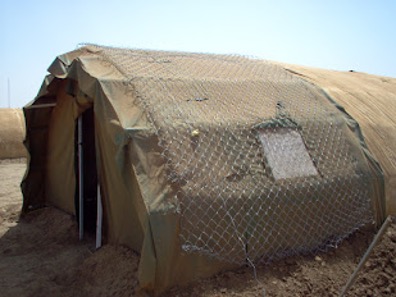 On the wildlife side, our guys in Juba (South Sudan) reported that the great killer crocodile was finally captured. This reptile was responsible for eating approximately 45 people and had been on the loose for years. The whole town erupted in celebrations after the capture. At the Juba Camp, our Finnish UN Civilian Police Officer woke up to find a very large and very poisonous snake slithering around in his tent, under his cot. He fought it with a stick and killed it, something I prefer not thinking about! Lots of cases of malaria down there with our guys, it is just crawling with mosquitoes and other nasty bugs.
On the wildlife side, our guys in Juba (South Sudan) reported that the great killer crocodile was finally captured. This reptile was responsible for eating approximately 45 people and had been on the loose for years. The whole town erupted in celebrations after the capture. At the Juba Camp, our Finnish UN Civilian Police Officer woke up to find a very large and very poisonous snake slithering around in his tent, under his cot. He fought it with a stick and killed it, something I prefer not thinking about! Lots of cases of malaria down there with our guys, it is just crawling with mosquitoes and other nasty bugs.
Here in Khartoum last week, the Sudanese Government decided to start clearing out the Internally Displaced Person (IDP) camp in Sida Abba, a “suburb” to the south of the city. The police started shooting up the IDPs, who eventually turned on them and chased them back to the police station. The IDPs stormed the building while the police just fired wildly into the crowd, eventually running out of ammunition. The crowd literally ripped 14 cops to pieces, by hand. The IDPs suffered 39 killed and hundreds wounded. I find it hard to believe the Government of Sudan would undertake such an action while the eyes of the world are on them. You can imagine what they are doing in the countryside away from the media.
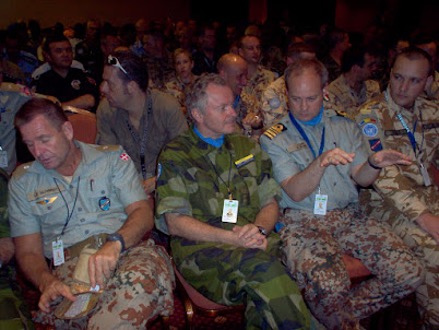 We had a very interesting visit by the Secretary General, Kofi Annan, yesterday. He is here to meet with the Government of Sudan officials and UN big wigs, and to tour Darfur. He held a town hall meeting yesterday for all UN personnel at the Hilton. He gave a very good speech which was inspirational, short and sweet. He then answered any questions from the floor. He was frank and honest in his answers, which was nice to see. Very impressive individual. It felt like he was a rock star!
We had a very interesting visit by the Secretary General, Kofi Annan, yesterday. He is here to meet with the Government of Sudan officials and UN big wigs, and to tour Darfur. He held a town hall meeting yesterday for all UN personnel at the Hilton. He gave a very good speech which was inspirational, short and sweet. He then answered any questions from the floor. He was frank and honest in his answers, which was nice to see. Very impressive individual. It felt like he was a rock star!
I will finally be going on leave next week for nine days. I will rendezvous with Susan and Zachary in Tuscany where we will spend a nice family vacation in a villa. I am counting
the minutes!
Sudan Despatches: 31 July 2005
Hello everyone! Sorry for not writing earlier but I have been a bit busy holding down three jobs at the same time for a few weeks. My boss, Dennis Cameron's Father-in-Law passed away in Australia and he went home for two weeks. At the same time, I was covering off as the Canadian Task Force Commander for three weeks as he was away on leave.
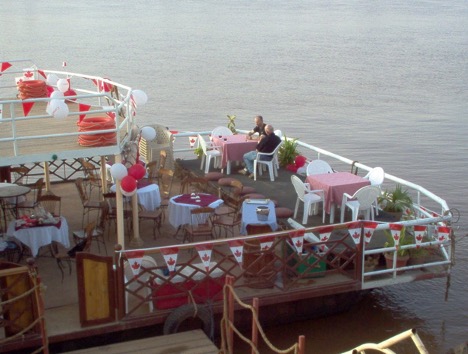 We started the month with a proper Canada Day celebration on a Nile Cruise boat sailing around the forks of the White and Blue Niles, courtesy of the Canadian Government! The weather was perfect, and the Nile was very high. We had excellent food, cold beer, and Canadian music. Everyone had a real nice time, not as good as being in Canada, but a nice stand-in none-the-less.
We started the month with a proper Canada Day celebration on a Nile Cruise boat sailing around the forks of the White and Blue Niles, courtesy of the Canadian Government! The weather was perfect, and the Nile was very high. We had excellent food, cold beer, and Canadian music. Everyone had a real nice time, not as good as being in Canada, but a nice stand-in none-the-less.
Took a quick trip to Kenya with two other Canadians last week for some R&R. Started with a Safari in Masa Marai for three days followed by three days at a resort south of Mombasa. The Safari was extremely interesting, quite an experience to see the wild animals in their natural state. We saw lions, zebras, wildebeest, elephants, giraffes, crocodiles, hippos, cheetahs, vultures, gazelles, and many more I cannot name. The whole "circle of life" thing was on constant display as the food chain asserted itself. The only relaxed animals were the lions, hippos, and crocodiles. We observed a cheetah devouring a wildebeest, lions eating zebras, and water buffaloes and vultures fighting for leftovers. Did not want to get out of the safety of the vehicle!
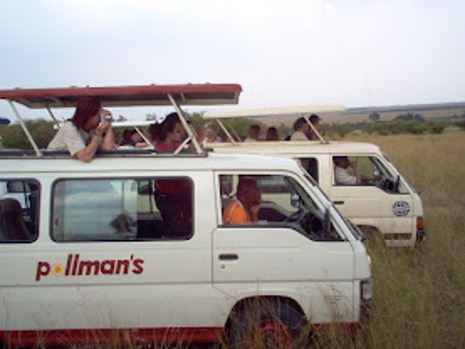 We stayed at a nice, tented camp just outside of the park which was clean and comfortable. It is an experience I would highly recommend. After the Safari we went back to Nairobi for an overnight stay before proceeding to Mombasa. It felt like an armed camp with police and soldiers everywhere. The crime rate in Kenya is unbelievably high and we had to be on our guard constantly. We did not take any foolish chances and had a nice time none-the-less. Had supper at the world-famous Carnivore restaurant where you can imagine what is served! Next day we flew to Mombasa and took a taxi to Diani Beach. Mombasa was a dump, very dirty and poor. The resort was like an armed camp, poverty, and squalor outside and paradise inside. It is on the Indian Ocean which is stunning (water was 27C) with miles of beautiful beaches. Unfortunately, the locals are on the prowl for tourists and just descend on them in a swarm. The only place you are left alone is on the heavily guarded resort grounds.
We stayed at a nice, tented camp just outside of the park which was clean and comfortable. It is an experience I would highly recommend. After the Safari we went back to Nairobi for an overnight stay before proceeding to Mombasa. It felt like an armed camp with police and soldiers everywhere. The crime rate in Kenya is unbelievably high and we had to be on our guard constantly. We did not take any foolish chances and had a nice time none-the-less. Had supper at the world-famous Carnivore restaurant where you can imagine what is served! Next day we flew to Mombasa and took a taxi to Diani Beach. Mombasa was a dump, very dirty and poor. The resort was like an armed camp, poverty, and squalor outside and paradise inside. It is on the Indian Ocean which is stunning (water was 27C) with miles of beautiful beaches. Unfortunately, the locals are on the prowl for tourists and just descend on them in a swarm. The only place you are left alone is on the heavily guarded resort grounds.
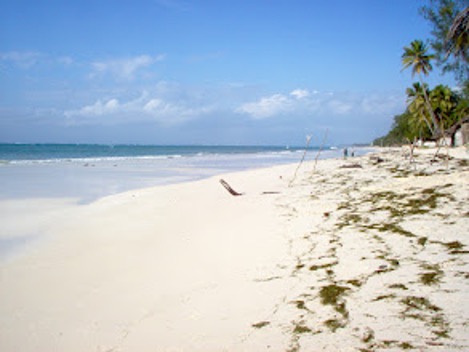 Quite a shame, really. There are so few jobs in Kenya that people do what they can to survive. The poverty in general was much worse than I thought. You always hear stories that Kenya is one of the best places in Africa, but it is still very badly off. Most people live in shacks with no electricity, water, or sewage. The basic daily wage is approximately $1.00 US and most people I talked to did not even receive that. The years of graft and corruption under President Moi have crippled the nation. It will take them a very long time to get back to something like they had after their independence from the UK. Exploitation and corruption are just rampant. A good example is at the resort. We were paying European rates of 64 Euros per day for an all-inclusive package. The staff was paid between $1 and $2 while the staff undergoing "training", are not paid at all. This training period lasts for 6 months. I do not understand how they can live for half a year without a salary.
Quite a shame, really. There are so few jobs in Kenya that people do what they can to survive. The poverty in general was much worse than I thought. You always hear stories that Kenya is one of the best places in Africa, but it is still very badly off. Most people live in shacks with no electricity, water, or sewage. The basic daily wage is approximately $1.00 US and most people I talked to did not even receive that. The years of graft and corruption under President Moi have crippled the nation. It will take them a very long time to get back to something like they had after their independence from the UK. Exploitation and corruption are just rampant. A good example is at the resort. We were paying European rates of 64 Euros per day for an all-inclusive package. The staff was paid between $1 and $2 while the staff undergoing "training", are not paid at all. This training period lasts for 6 months. I do not understand how they can live for half a year without a salary.
Now I am back in Khartoum and anxiously awaiting the 9th of August which is when I am back in Copenhagen with the family for 2.5 weeks.
Sudan Despatches: 29 Sep 2005
Greetings to all of you from sunny Sudan, where it is still in the 40Cs in the day, and 35C at night.
This will most probably be my last despatch from here as my Tour is almost over. I will be repatriating on 10 Oct to Copenhagen to resume a normal life with my loved ones. I have missed out on too many aspects of Zach’s growing up, when I came here in April he was not walking or talking, now he gets around like he is running the 100 Meter dash and is talking more and more.
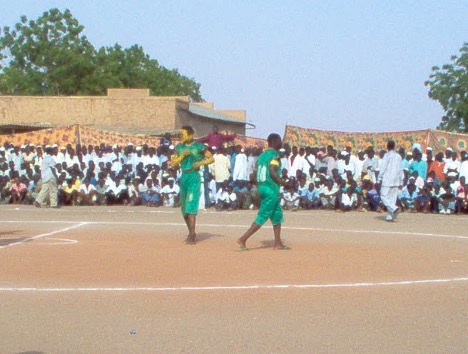 Since my last correspondence, I have enjoyed 2.5 weeks off with the family in Copenhagen in August when we were blessed with a wonderful holiday. Lots of day trips in and around Copenhagen in truly exceptional weather. Went to the beach, a Safari Park where we saw tigers and other wild animals (Zach loved the giraffes!), the Copenhagen Zoo, the white cliffs of Clint in Southern Denmark, and a whole bunch of other things. Susan and I enjoyed one of the best meals of our lives for our Fourth Wedding anniversary in a very special Scandinavian restaurant across the river overlooking downtown. It all passed too quickly!
Since my last correspondence, I have enjoyed 2.5 weeks off with the family in Copenhagen in August when we were blessed with a wonderful holiday. Lots of day trips in and around Copenhagen in truly exceptional weather. Went to the beach, a Safari Park where we saw tigers and other wild animals (Zach loved the giraffes!), the Copenhagen Zoo, the white cliffs of Clint in Southern Denmark, and a whole bunch of other things. Susan and I enjoyed one of the best meals of our lives for our Fourth Wedding anniversary in a very special Scandinavian restaurant across the river overlooking downtown. It all passed too quickly!
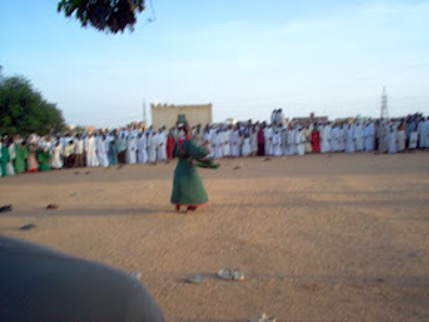 Since my return to Sudan, I have participated in two very important cultural events — Nubian wrestling and the Whirling Dervishes. The wrestling was in a town to the north of Khartoum where the wrestlers from different towns and neighbourhoods gather every Friday at Sundown to face off. They are almost naked except for brightly coloured chalk which they cover themselves with. They put on quite a show before the wrestling trying to psych out their opponents by dancing and chanting. The actual wrestling was real (no WWF) and very exciting. The crowds would just go wild at the end. The Whirling Dervishes were also on a Friday night at sundown in a cemetery in the south of Khartoum where their spiritual leader is buried. People assemble at the mosque and form a large circle. Men in brightly coloured clothing begin chanting African chants and start pumping themselves up. Selected Dervishes get into the middle of the ring and begin a wild whirl for up to 30 minutes, which is when they achieve a form of ecstasy. More and more Dervishes jump into the ring and join in. All of this as the sun slowly descends — very dramatic. We (UN people) were made to feel very welcome at both events and encouraged to ask questions and engage in conversation. Quite a life experience — this is one of the reasons I joined up! This weekend we are off to visit the pyramids at Meroe, should be a great adventure.
Since my return to Sudan, I have participated in two very important cultural events — Nubian wrestling and the Whirling Dervishes. The wrestling was in a town to the north of Khartoum where the wrestlers from different towns and neighbourhoods gather every Friday at Sundown to face off. They are almost naked except for brightly coloured chalk which they cover themselves with. They put on quite a show before the wrestling trying to psych out their opponents by dancing and chanting. The actual wrestling was real (no WWF) and very exciting. The crowds would just go wild at the end. The Whirling Dervishes were also on a Friday night at sundown in a cemetery in the south of Khartoum where their spiritual leader is buried. People assemble at the mosque and form a large circle. Men in brightly coloured clothing begin chanting African chants and start pumping themselves up. Selected Dervishes get into the middle of the ring and begin a wild whirl for up to 30 minutes, which is when they achieve a form of ecstasy. More and more Dervishes jump into the ring and join in. All of this as the sun slowly descends — very dramatic. We (UN people) were made to feel very welcome at both events and encouraged to ask questions and engage in conversation. Quite a life experience — this is one of the reasons I joined up! This weekend we are off to visit the pyramids at Meroe, should be a great adventure.
Work has been extremely busy since my return from Copenhagen. We are scrambling trying to establish the camps before the troops arrive. The deployment timeline has been pushed to the right about three times as things are not coming together as well as we hoped for. The rainy season has caused most of the camp areas to be under water and impossible to work on. Civilian Contractors have reneged on all their contracts and have NEVER met a timing. Ramadan is starting on 4 Oct and that will slow things down even more if that is possible. Very frustrating, but professionally challenging. The people I work with are fantastic, will be sad to say goodbye to them. The Canadians have all been key personnel throughout the mission and have been a credit to the flag, without exception. It is easy to criticize aspects of the way we do things back home, but you quickly discover that in an international arena, we are superstars. By far, and I mean BY FAR, the best and most competent personnel are from the U.S., Britain, Australia, NZ, and Canada (kind of sounds like the ABCA alliance, doesn’t it?), Denmark and Sweden. The Indians have also impressed me with their high level of skill and dedication to the task at hand.
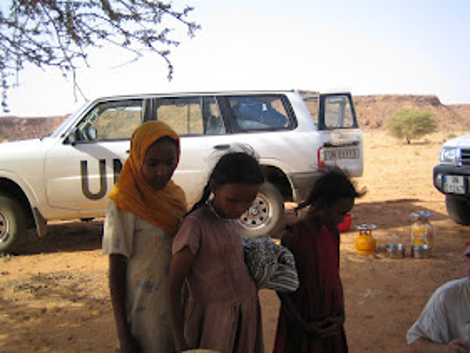 I must say that this has been an excellent adventure that has tested all my professional competencies. This is one of the worst places in the world and we were able to get the mission up and running with the UN system (all you military guys know exactly what I mean by that). The cause is just, and these people are worthy of our efforts. The Sudanese have been wonderful to us; I have made many good friends here that I will keep in contact with. The UN will provide them with some safety and security so they can start rebuilding their lives. They have had many peace treaties in the past that have failed due to the absence of outside monitors. Now they have found a large supply of oil which may bring some prosperity if it is managed properly, and with the UN as an outside observer. I am leaving here feeling optimistic for the future. It has been difficult being away from my loved ones for so long but if my efforts help in some small way with letting someone have a better life free from war, then it was worth it.
I must say that this has been an excellent adventure that has tested all my professional competencies. This is one of the worst places in the world and we were able to get the mission up and running with the UN system (all you military guys know exactly what I mean by that). The cause is just, and these people are worthy of our efforts. The Sudanese have been wonderful to us; I have made many good friends here that I will keep in contact with. The UN will provide them with some safety and security so they can start rebuilding their lives. They have had many peace treaties in the past that have failed due to the absence of outside monitors. Now they have found a large supply of oil which may bring some prosperity if it is managed properly, and with the UN as an outside observer. I am leaving here feeling optimistic for the future. It has been difficult being away from my loved ones for so long but if my efforts help in some small way with letting someone have a better life free from war, then it was worth it.
I will be seeing most of you in the next few months, until then, au revoir! Also, I want to thank all of you for keeping in contact and writing back to me. It was very important for my morale to keep in touch with all of you.
Sudan Despatches: 13 Oct 2005 (From Copenhagen)
Finally arrived home in Copenhagen at lunchtime on 10 Oct after a very long flight North. Was so good to come home after such a long absence from the family. There is a very satisfying feeling coming off a tour on a high note knowing you have done a good job and the family is awaiting you. The tour was one of the best experiences in my professional life and I thoroughly enjoyed it. Also met so many amazing people from the UN, both civilian and military alike, and Sudanese nationals. They have become true friends after sharing some intense times together. Will miss all of them.
The return was fantastic. Fritz, my Austrian Boss, picked me up at the airport and brought me home to Sue, Zach, and Jasper. Zach was just beside himself with happiness when he saw me. Sue did a great job of showing him photos of me and reminding him about his dad. Sue had prepared a full Thanksgiving Dinner with all the trimmings, which was just what I was craving. Was not easy doing that with Lil ‘Zach around keeping her “company”! Have spent three great days together and Sue is off to Paris for a few days for a well-deserved break. Will just be the “Boys” back in Copenhagen trying to cope without her.
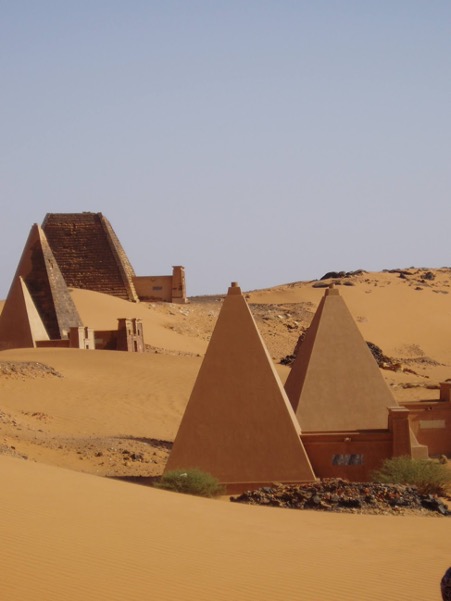 Before leaving Sudan, I participated in some very interesting adventures. A fun bunch of us have been on several guided trips. Two weekends ago we went to the Meroe Pyramids, a few hours north of Khartoum, on the way to the border with Egypt. This two-day, overnight trip included the Pyramids of the Royal Cemetery of Meroe, the Meroitic temples of Naqa and Musawwarat es Sufra, the old market town of Shendi.
Before leaving Sudan, I participated in some very interesting adventures. A fun bunch of us have been on several guided trips. Two weekends ago we went to the Meroe Pyramids, a few hours north of Khartoum, on the way to the border with Egypt. This two-day, overnight trip included the Pyramids of the Royal Cemetery of Meroe, the Meroitic temples of Naqa and Musawwarat es Sufra, the old market town of Shendi.
Two cars-full of mixed military-civilian UN staff embarked on the fun road trip on Friday morning, led by Asaad, our trusty guide. On the way from Khartoum to Port Sudan, about 200 km north-east of Khartoum, near Bagrawiya, we went to the area of the ancient Meroe, where we found a group of a few dozens of pyramids spread over a small hill about one quarter square kilometer in size. The pyramids, much smaller than their well-known counterparts in Egypt, are the remains of a royal cemetery from the Meroitic kingdom (between 300 BCE and 300 CE).
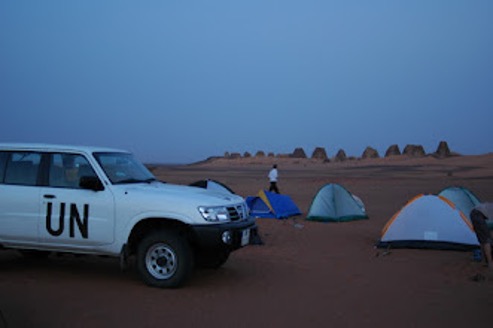 We arrived at the pyramids at sunset and set up camp in the middle of the desert. Our guide provided tents and foam mattresses. We had a bonfire, ate delicious meat and salad, smoked shisha (flavoured tobacco common in the Middle East, smoked out of a bong-like pipe) and drank wine. It was heaven and I didn’t think about work once. I did not put the fly up on the tent and was able to see an unbelievable sky. The stars were amazingly clear and many, I forgot that I can’t really see them in Khartoum.
We arrived at the pyramids at sunset and set up camp in the middle of the desert. Our guide provided tents and foam mattresses. We had a bonfire, ate delicious meat and salad, smoked shisha (flavoured tobacco common in the Middle East, smoked out of a bong-like pipe) and drank wine. It was heaven and I didn’t think about work once. I did not put the fly up on the tent and was able to see an unbelievable sky. The stars were amazingly clear and many, I forgot that I can’t really see them in Khartoum.
The next morning, we spent the day exploring the gorgeous pyramids, several of them partially reconstructed by a team of German archaeologists who have been working in Sudan for many decades. We also went into a freaky bat cave — I’ve never been so close to so many bats. Thank goodness I had my rabies shots before coming to Sudan (not that the bats were interested in us at all). Our guide Asaad stood in the middle of the cave and called the bats. They all swarmed him and from thereon in he was referred to as “The Bat Man”. Quite a sight.
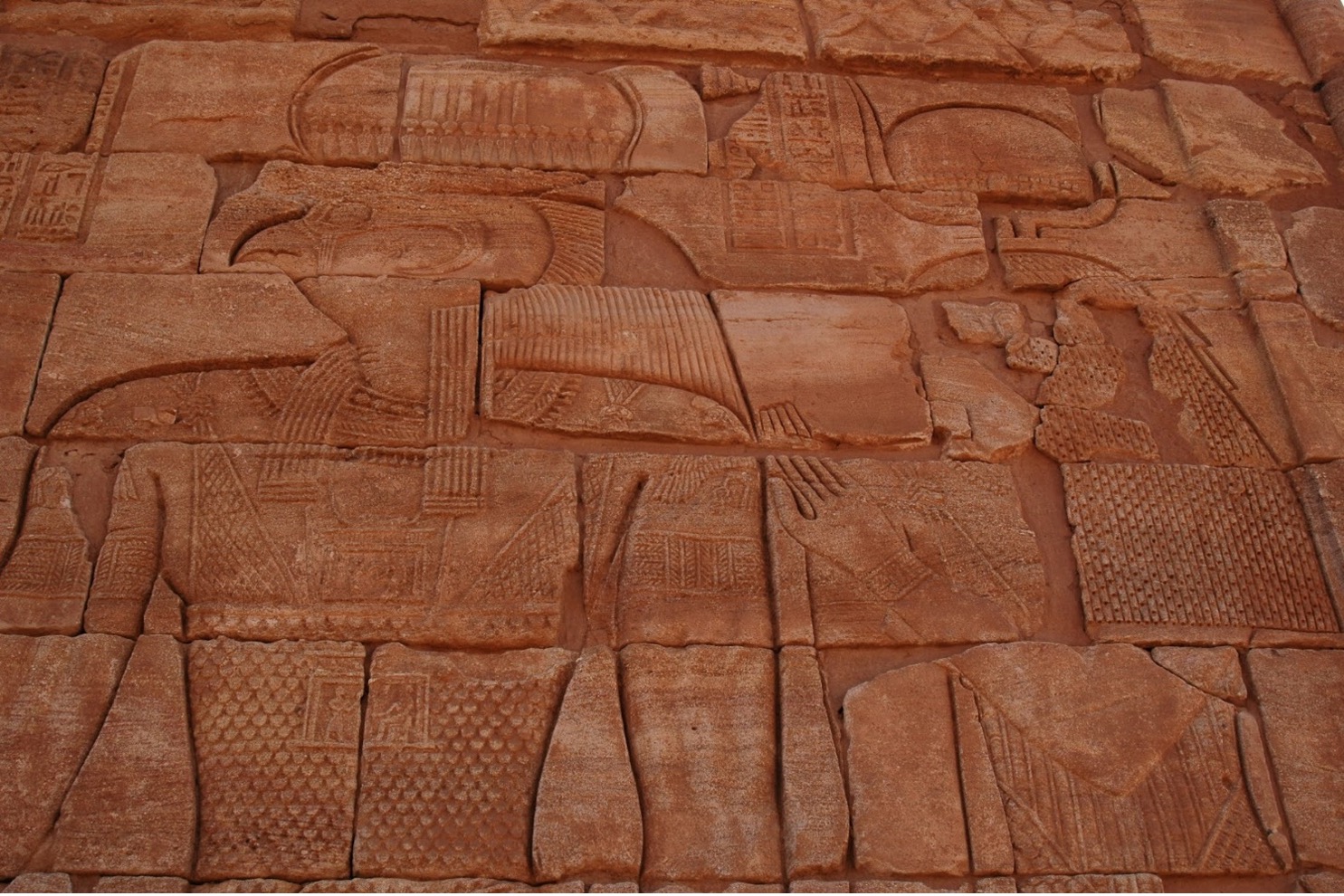 The pyramids were quite a dramatic sight, and with virtually no other tourists we had the place to ourselves. Quite different from my experience to Cairo, in which tourists must scrabble over one another just to catch a glimpse of the Sphinx. The most dramatic was the South Cemetery, dating to around 8th century BC, where kings and queens continued to be buried until the fall of the Kushite rule (aka Nubians) in the 4th century AD (thank you Brandt Guide, the only available recent tour book on Sudan). A particularly neat feature of the hieroglyphics was the mixture between Egyptian and African influences. For example, the drawings depict plump and meaty women with J-Lo asses, as well as headdresses obviously of African origin. Quite different from images depicted in the Egyptian hieroglyphics.
The pyramids were quite a dramatic sight, and with virtually no other tourists we had the place to ourselves. Quite different from my experience to Cairo, in which tourists must scrabble over one another just to catch a glimpse of the Sphinx. The most dramatic was the South Cemetery, dating to around 8th century BC, where kings and queens continued to be buried until the fall of the Kushite rule (aka Nubians) in the 4th century AD (thank you Brandt Guide, the only available recent tour book on Sudan). A particularly neat feature of the hieroglyphics was the mixture between Egyptian and African influences. For example, the drawings depict plump and meaty women with J-Lo asses, as well as headdresses obviously of African origin. Quite different from images depicted in the Egyptian hieroglyphics.
On the way back towards Khartoum the next day we stopped in Shendi, a quaint and remote-from-the-world town, which used to be a central slave-trading town in the 18th century. There we sat near the Nile and had some delicious Cardamom coffee, while locals came over and examined us out of curiosity (I don’t think they get many tourists through those parts). A particular highlight was a delicious juicy grapefruit that we bought at the local market. The children there were amazingly beautiful, with innocent wide-eyes and genuine friendly interest. We stopped for a traditional Sudanese meal of ful (a bean mix), pita and tomato and cucumber salad.
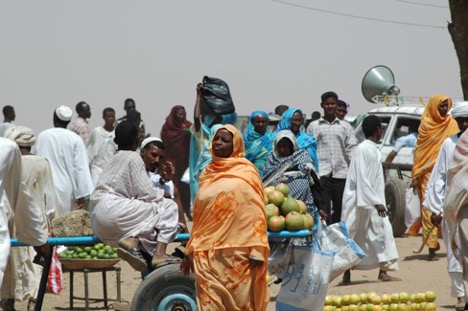 The final stop before heading home was the 6th cataract of the Nile, located in a gorge called Sabaluqa. It was at this location where our guide Asaad met his wife several years earlier and proposed within half an hour of meeting the geologist beauty. We lounged under a thatch shelter for a few minutes, drinking tea, relaxing, and shooting the breeze. Paradise, I tell you.
The final stop before heading home was the 6th cataract of the Nile, located in a gorge called Sabaluqa. It was at this location where our guide Asaad met his wife several years earlier and proposed within half an hour of meeting the geologist beauty. We lounged under a thatch shelter for a few minutes, drinking tea, relaxing, and shooting the breeze. Paradise, I tell you.
Two other fantastic events, which took place last week, were a Ramadan Break the Fast dinner and a Nile Cruise. For Ramadan, Muslims fast for a full month. Ramadan is a time when Muslims concentrate on their faith and spend less time on the concerns of their everyday lives. During the Fast of Ramadan strict restraints are placed on the daily lives of Muslims. They are not allowed to eat or drink during the daylight hours. Smoking and sexual relations are also forbidden during fasting. At the end of the day the fast is broken with prayer and a meal called the iftar. In the evening following the iftar it is customary for Muslims to go out visiting family and friends. The fast is then resumed the next morning. For the dinner, Asaad (the same tour guide who brought us to Omdurman and the pyramids) invited us to his home in a suburb of Khartoum. We had a wide selection of amazing juices including from Baobab Tree, apricot, karkadeh (hibiscus) and some sweet and sour juice tasting kind of like dates and shockingly delicious. We ate lots of traditional Sudanese dishes, and we talked for hours with Asaad, his wife, their gorgeous 9-month-old girl, and much of the wife’s family. It was an amazing experience.
The final event to share with you friends is the Nile cruise I went on a few nights ago, also organized by … you guessed it … Asaad. He’s cornered the tourist market in these parts. The cruise lasted about four hours, through sunset. We lounged on pillows on the top deck of the boat with a shockingly beautiful sunset, a cool breeze and good company. It was incredibly relaxing, and a great way to see the edges of Khartoum. At sundown we had a large buffet dinner and danced on the lower deck to DJ-ed music.
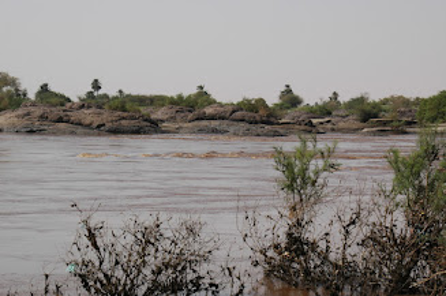 The last thing I did on my day of departure was to go and visit the site of the Battle of Omdurman with Asaad. Very interesting place, still with a monument to the 21st Lancers of the British Cavalry who led the famous charge there. Winston Churchill took part in it and wrote about it in his book “The River War”. This was where the Brits defeated the Sudanese with the help of machine guns and artillery. The Sudanese lost over 20,000 dead while the Brits suffered fewer than 40 casualties. This was the beginning of the British rule, which lasted until 1956.
The last thing I did on my day of departure was to go and visit the site of the Battle of Omdurman with Asaad. Very interesting place, still with a monument to the 21st Lancers of the British Cavalry who led the famous charge there. Winston Churchill took part in it and wrote about it in his book “The River War”. This was where the Brits defeated the Sudanese with the help of machine guns and artillery. The Sudanese lost over 20,000 dead while the Brits suffered fewer than 40 casualties. This was the beginning of the British rule, which lasted until 1956.
I will be off until 31 October when I must return to work at SHIRBRIG. We will be leaving for Training in Kingston, ON on 16 November followed by an After-Action Review for the Sudan Mission on 1 December for one week. Both should be great, and I will see many of you during that time.
Epilogue: 4 April 2023
It’s hard to believe it’s been 18 years since that pivotal deployment to Sudan, it feels like it was yesterday. My son Zachary is now studying Mechanical Engineering at the University of Ottawa and I am retired from the Army and working as a public servant at National Defence, still supporting the CAF. I hope, with these letters home, I was able to paint a full picture of what it was like to serve as a UN Peacekeeper on a mission to Africa. The important and complex work aspects, trying to achieve an impossible logistics mission along with the fun side such as safaris and visits to cultural events, were all part of this unique and satisfying experience. I consider it one of the best times of my life.


